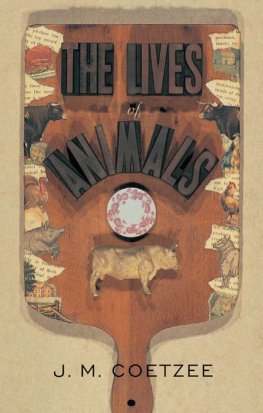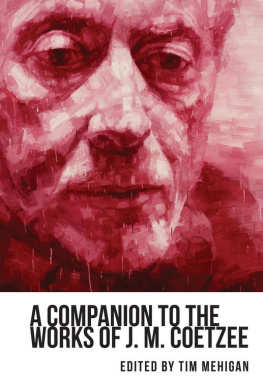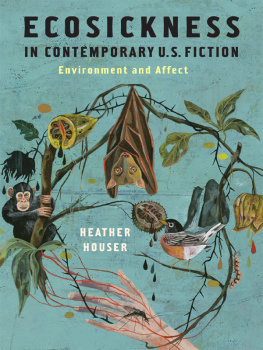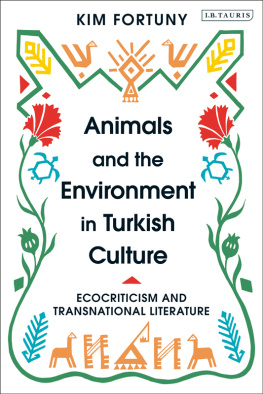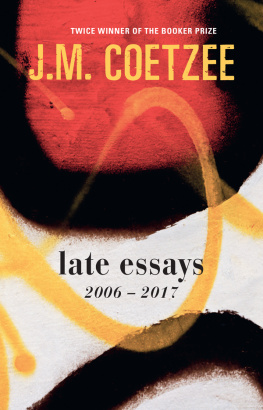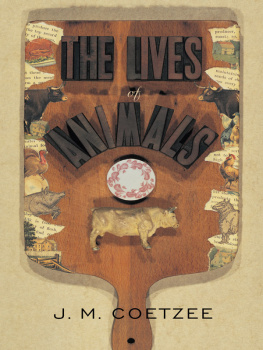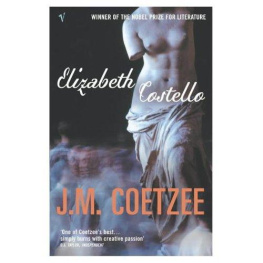Acclaim for Yann Martel's Life of Pi
"Life of Pi is not just a readable and engaging novel, it's a finely twisted length of yarnyarn implying a far-fetched story you can't quite swallow whole, but can't dismiss outright. Life of Pi is in this traditiona story of uncertain veracity, made credible by the art of the yarn-spinner. Like its noteworthy ancestors, among which I take to be Robinson Crusoe, Gulliver's Travels, the Ancient Mariner, Moby Dick and Pincher Martin, it's a tale of disaster at sea coupled with miraculous survivala boys' adventure for grownups." Margaret Atwood, The Sunday Times (London)
"A fabulous romp through an imagination by turns ecstatic, cunning, despairing and resilient, this novel is an impressive achievement.... Martel displays the clever voice and tremendous storytelling skills of an emerging master." Publisher's Weekly (starred review)
"[Life of Pi] has a buoyant, exotic, insistence reminiscent of Edgar Allen Poe's most Gothic fiction.... Oddities
abound and the storytelling is first-rate. Yann Martel has written a novel full of grisly reality, outlandish plot, inventive setting and thought-provoking questions about the value and purpose of fiction."
The Edmonton journal
"Martel's ceaselessly clever writing... [and] artful, occasionally hilarious, internal dialogue... make a fine argument for the divinity of good art." The Gazette
"Astounding and beautiful.... The book is a pleasure not only for the subtleties of its philosophy but also for its ingenious and surprising story. Martel is a confident, heartfelt artist, and his imagination is cared for in a writing style that is both unmistakable and marvelously reserved. The ending of Life of Pi... is a show of such sophisticated genius that I could scarcely keep my eyes in my head as I read it." The Vancouver Sun
"I guarantee that you will not be able to put this book down. It is a realistic, gripping story of survival at sea. [Martel's] imagination is powerful, his range enormous, his capacity for persuasion almost limitless. I predict that Yann Martel will develop into one of Canada's great writers." The Hamilton Spectator
"Life of Pi is a marvelous feat of imagination and inquiry. Yann Martel has earned his stripes as a novelist of grand ideas and sports them here as surely as Richard Parker, the majestic Bengal tiger, wears his own black and orange skin." The Ottawa X Press
YANN MARTEL
life of pi
A NOVEL
author's note
This book was born as I was hungry. Let me explain. In the spring of 1996, my second book, a novel, came out in Canada. It didn't fare well. Reviewers were puzzled, or damned it with faint praise. Then readers ignored it. Despite my best efforts at playing the clown or the trapeze artist, the media circus made no difference. The book did not move. Books lined the shelves of bookstores like kids standing in a row to play baseball or soccer, and mine was the gangly, unathletic kid that no one wanted on their team. It vanished quickly and quietly.
The fiasco did not affect me too much. I had already moved on to another story, a novel set in Portugal in 1939. Only I was feeling restless. And I had a little money.
So I flew to Bombay. This is not so illogical if you realize three things: that a stint in India will beat the restlessness out of any living creature; that a little money can go a long way there; and that a novel set in Portugal in 1939 may have very little to do with Portugal in 1939.
I had been to India before, in the north, for five months. On that first trip I had come to the subcontinent completely unprepared. Actually, I had a preparation of one word. When I told a friend who knew the country well of my travel plans, he said casually, "They speak a funny English in India. They like words like bamboozle." I remembered his words as my plane started its descent towards Delhi, so the word bamboozle was my one preparation for the rich, noisy, functioning madness of India. I used the word on occasion, and truth be told, it served me well. To a clerk at a train station I said, "I didn't think the fare would be so expensive. You're not trying to bamboozle me, are you?" He smiled and chanted, "No sir! There is no bamboozlement here. I have quoted you the correct fare."
This second time to India I knew better what to expect and I knew what I wanted: I would settle in a hill station and write my novel. I had visions of myself sitting at a table on a large veranda, my notes spread out in front of me next to a steaming cup of tea. Green hills heavy with mists would lie at my feet and the shrill cries of monkeys would fill my ears. The weather would be just right, requiring a light sweater mornings and evenings, and something short-sleeved midday. Thus set up, pen in hand, for the sake of greater truth, I would turn Portugal into a fiction. That's what fiction is about, isn't it, the selective transforming of reality? The twisting of it to bring out its essence? What need did I have to go to Portugal?
The lady who ran the place would tell me stories about the struggle to boot the British out. We would agree on what I was to have for lunch and supper the next day. After my writing day was over, I would go for walks in the rolling hills of the tea estates.
Unfortunately, the novel sputtered, coughed and died. It happened in Matheran, not far from Bombay, a small hill station with some monkeys but no tea estates. It's a misery peculiar to would-be writers. Your theme is good, as are your sentences. Your characters are so ruddy with life they practically need birth certificates. The plot you've mapped out for them is grand, simple and gripping. You've done your research, gathering the factshistorical, social, climatic, culinarythat will give your story its feel of authenticity. The dialogue zips along, crackling with tension. The descriptions burst with colour, contrast and telling detail. Really, your story can only be great. But it all adds up to nothing. In spite of the obvious, shining promise of it, there comes a moment when you realize that the whisper that has been pestering you all along from the back of your mind is speaking the flat, awful truth: it won't work. An element is missing, that spark that brings to life a real story, regardless of whether the history or the food is right. Your story is emotionally dead, that's the crux of it. The discovery is something soul-destroying, I tell you. It leaves you with an aching hunger.
From Matheran I mailed the notes of my failed novel. I mailed them to a fictitious address in Siberia, with a return address, equally fictitious, in Bolivia. After the clerk had stamped the envelope and thrown it into a sorting bin, I sat down, glum and disheartened. "What now, Tolstoy? What other bright ideas do you have for your life?" I asked myself.
Well, I still had a little money and I was still feeling restless. I got up and walked out of the post office to explore the south of India.
I would have liked to say, "I'm a doctor," to those who asked me what I did, doctors being the current purveyors of magic and miracle. But I'm sure we would have had a bus accident around the next bend, and with all eyes fixed on me I would have to explain, amidst the crying and moaning of victims, that I meant in law; then, to their appeal to help them sue the government over the mishap, I would have to confess that as a matter of fact it was a Bachelor's in philosophy; next, to the shouts of what meaning such a bloody tragedy could have, I would have to admit that I had hardly touched Kierkegaard; and so on. I stuck to the humble, bruised truth.
Along the way, here and there, I got the response, "A writer? Is that so? I have a story for you." Most times the stories were little more than anecdotes, short of breath and short of life.
I arrived in the town of Pondicherry, a tiny self-governing Union Territory south of Madras, on the coast of Tamil Nadu. In population and size it is an inconsequent part of Indiaby comparison, Prince Edward Island is a giant within Canadabut history has set it apart. For Pondicherry was once the capital of that most modest of colonial empires, French India. The French would have liked to rival the British, very much so, but the only Raj they managed to get was a handful of small ports. They clung to these for nearly three hundred years. They left Pondicherry in 1954, leaving behind nice white buildings, broad streets at right angles to each other, street names such as rue de la Marine and rue Saint-Louis, and kepis, caps, for the policemen.
Next page

